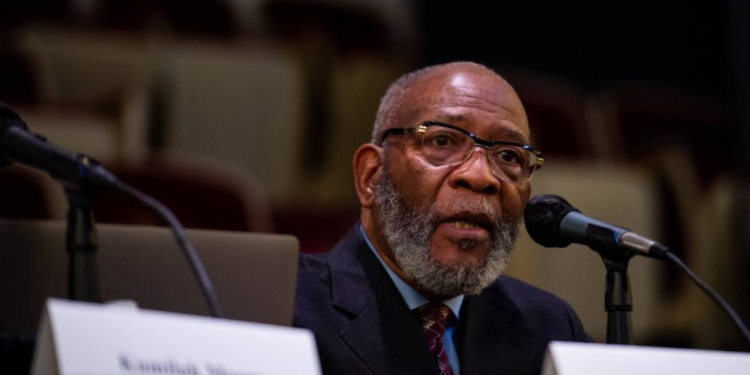Sep 7, 2024 Story by: Editor
Vice President Kamala Harris, during her time as a California senator, supported legislation in 2019 aimed at creating a federal commission to explore slavery reparations. Since launching her presidential campaign, however, she has remained quiet on the subject. Harris had backed the Senate version of H.R. 40, a bill first introduced by former Representative John Conyers Jr. (D-Mich.) in 1989, and continuously reintroduced in each Congress thereafter.
Following Conyers’ passing, Representative Sheila Jackson Lee (D-Texas) took on the responsibility of advancing the legislation. In a 2019 NPR interview, Harris explained, “I think that the word, the term reparations, it means different things to different people. But what I mean by it is that we need to study the effects of generations of discrimination and institutional racism and determine what can be done, in terms of intervention, to correct the course.”
When questioned about Harris’ stance on reparations during an interview on The Hill’s “The Switch Up” podcast, Jasmine Harris, Black media director for the vice president’s campaign, shifted the conversation to Harris’ focus on helping hardworking Americans. Jasmine Harris emphasized, “I think mostly what’s being considered right now is just making sure, like I said, that we’re evening the playing field across the board, and making sure that all Americans, that hardworking Americans across the board, have the opportunity not just to get by, but to get ahead.”
H.R. 40, officially named the Commission to Study and Develop Reparation Proposals for African-Americans Act, seeks to establish a federal commission tasked with examining both the legacy of slavery and its ongoing effects. This commission would investigate evidence of slavery, the role of federal and state governments in sustaining the institution, and discriminatory laws against freed African slaves and their descendants. Additionally, it would propose measures to address the harm caused by slavery and discrimination, including a formal apology and potential reparations.
Despite being introduced in every Congress since 1989, H.R. 40 only saw a floor vote for the first time on April 14, 2021. Senator Cory Booker (D-N.J.) sponsored the Senate version of the bill, supported by 19 Democratic and one independent co-sponsor. In the House, it garnered 196 co-sponsors in 2021, all Democrats. Jackson Lee reintroduced the bill in 2023 with 130 Democratic co-sponsors.
“Slavery is America’s original sin, and this country has yet to atone for the atrocities visited upon generations of enslaved Africans and their descendants,” Jackson Lee wrote in 2020. “H.R. 40 is intended to create the framework for a national discussion on the enduring impact of slavery and its complex legacy to begin that necessary process of atonement.”
Following Jackson Lee’s death in July, the future of the legislation remains uncertain.
According to Pew Research Center, 57% of Black Americans report feeling the ongoing impacts of slavery. Support for reparations, however, varies significantly by race, with 77% of Black Americans in favor of repayment for descendants of enslaved people, compared to only 18% of white Americans.
Since the murder of George Floyd in 2020, the reparations movement has gained momentum across the country. In October 2020, California Governor Gavin Newsom (D) established the nation’s first task force dedicated to studying and recommending reparations for slavery. By January of this year, the California Legislative Black Caucus had proposed 14 reparations bills aimed at implementing policies suggested in the 2023 task force report. Similarly, in June, Chicago Mayor Brandon Johnson signed an executive order to form a task force focused on reparations for the city’s Black residents.
Nevertheless, former President Donald Trump expressed his skepticism about reparations in 2019, telling The Hill, “I think it’s a very unusual thing. You have a lot of — it’s been a very interesting debate. I don’t see it happening, no.”
In contrast, the Biden administration in 2021 indicated support for at least studying the matter. “He certainly would support a study of reparations,” said former White House press secretary Jen Psaki in February 2021. “He understands we don’t need a study to take action right now on systemic racism, so he wants to take actions within his own government in the meantime.” Source: The Hill

















